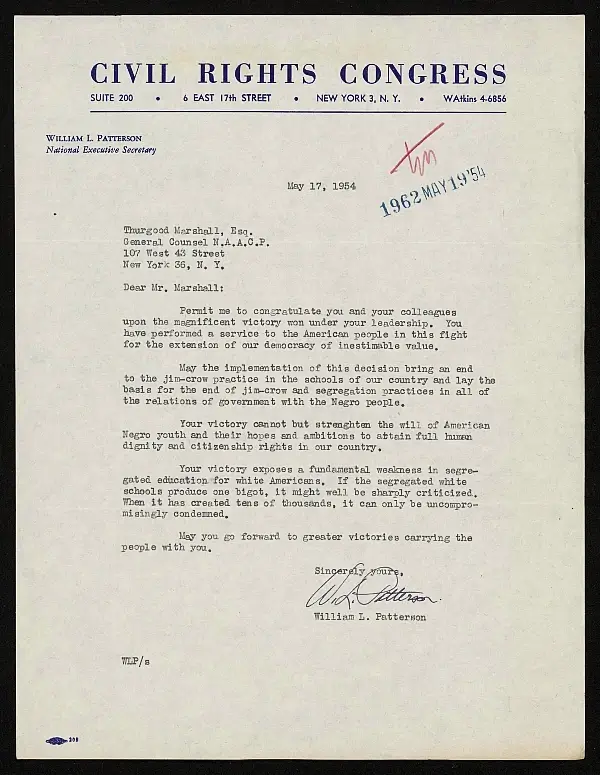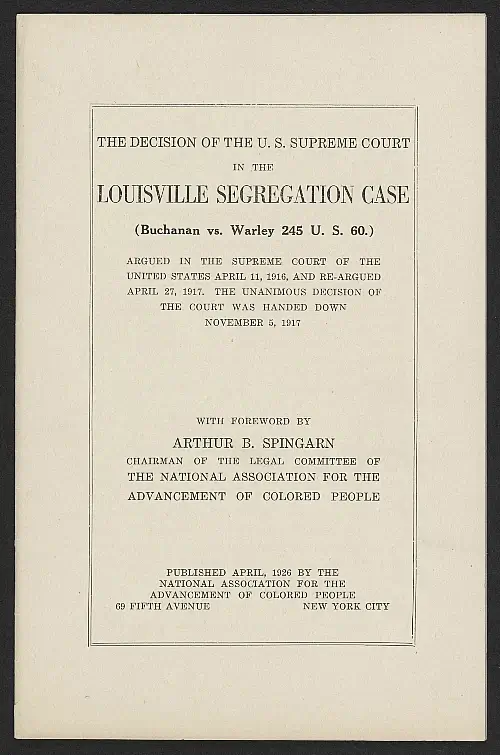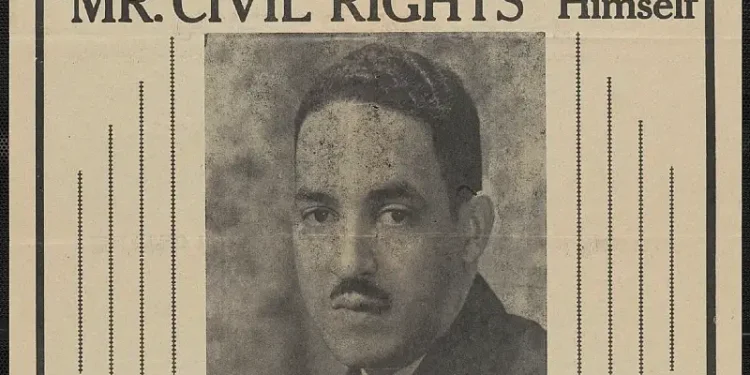For the first time, the NAACP Legal Defense and Educational Fund’s records, covering critical civil rights cases from 1915 to 1968, are available online through the Library of Congress.
These newly digitized archives offer a rare glimpse into pivotal moments in American history, highlighting the fight against racial injustice and the legal battles that shaped the civil rights movement.

Preserving Civil Rights History
The NAACP Legal Defense and Educational Fund, often referred to as LDF, was founded in 1939. It quickly became a leading force in challenging racial discrimination in U.S. courts, with a focus on establishing equal rights under the law.
Now, with around 80,000 items digitized and accessible online, researchers, students, and history enthusiasts can explore the records that detail landmark cases like Brown v. Board of Education and Gray v. Main.
These records, which include correspondence, legal documents, and internal memos, span critical decades of the 20th century. This newly available digital collection sheds light on the LDF’s work to dismantle segregation, secure voting rights, and address racial violence across America.

Highlights of the Collection
Some of the standout documents in the collection include:
- Thurgood Marshall’s correspondence about the Emmett Till trial in 1955, discussing witness testimonies and trial strategies.
- Letters between civil rights leaders, such as Langston Hughes and Henry Lee Moon, on cultural and political topics related to racial equality.
Case/Event |
Description |
|---|---|
| Brown v. Board of Education | Landmark case that led to the desegregation of public schools in 1954. |
| Detroit Riot of 1943 | Detailed records of the NAACP’s legal response to racial violence in Detroit. |
| Emmett Till Trial, 1955 | Communications between LDF lawyers and journalists about this pivotal trial. |
The Power of Digitization
Digitizing these records is more than just preserving history—it’s about making it accessible to everyone. Before this effort, many of the LDF’s crucial legal documents were only available to those able to visit the Library of Congress in person.
Now, thanks to a collaboration between the Library, the Legal Defense Fund, and the Ford Foundation, thousands of images have been made available online. This project enhances public access to primary sources that document the fight for racial justice, expanding opportunities for research and education.
The collection includes documents addressing a range of civil rights issues, including:
- School desegregation and voting rights cases from the 1940s and 1950s.
- Legal battles over discrimination in housing, military court martials, and public facilities.
This digitization project, part of the Library of Congress’s “For the People: Fund for Powering Knowledge,” ensures these essential records are available for future generations.
As the project continues, even more files will be made public, with additional releases anticipated by early 2025.
Impact on Research and Education
Access to the NAACP Legal Defense Fund archives online is a game-changer for researchers, educators, and students studying the civil rights movement. It allows for a deeper understanding of how legal strategies were developed to challenge segregation, police brutality, and other forms of racial injustice.
These records also offer new insights into the broader historical context of these legal battles, including the social and political forces that influenced court rulings and public sentiment.
By making this collection accessible to all, the Library of Congress underscores the importance of preserving civil rights history and empowering future generations with knowledge about America’s ongoing struggle for equality.
A New Era of Accessibility
Digital archives are expanding, and as a result, historians and researchers are unlocking more historical records for public access.
The NAACP Legal Defense Fund records are now part of that growing body of accessible resources, offering unparalleled insight into some of the most important legal battles of the 20th century.
Connecting today’s generation with these documents reminds us that the fight for justice is ongoing—and that history informs the path forward.
This collection is now available on the Library of Congress’s official website, giving users the ability to explore these powerful stories from the comfort of their own homes.
Sources: THX News & Library of Congress.








